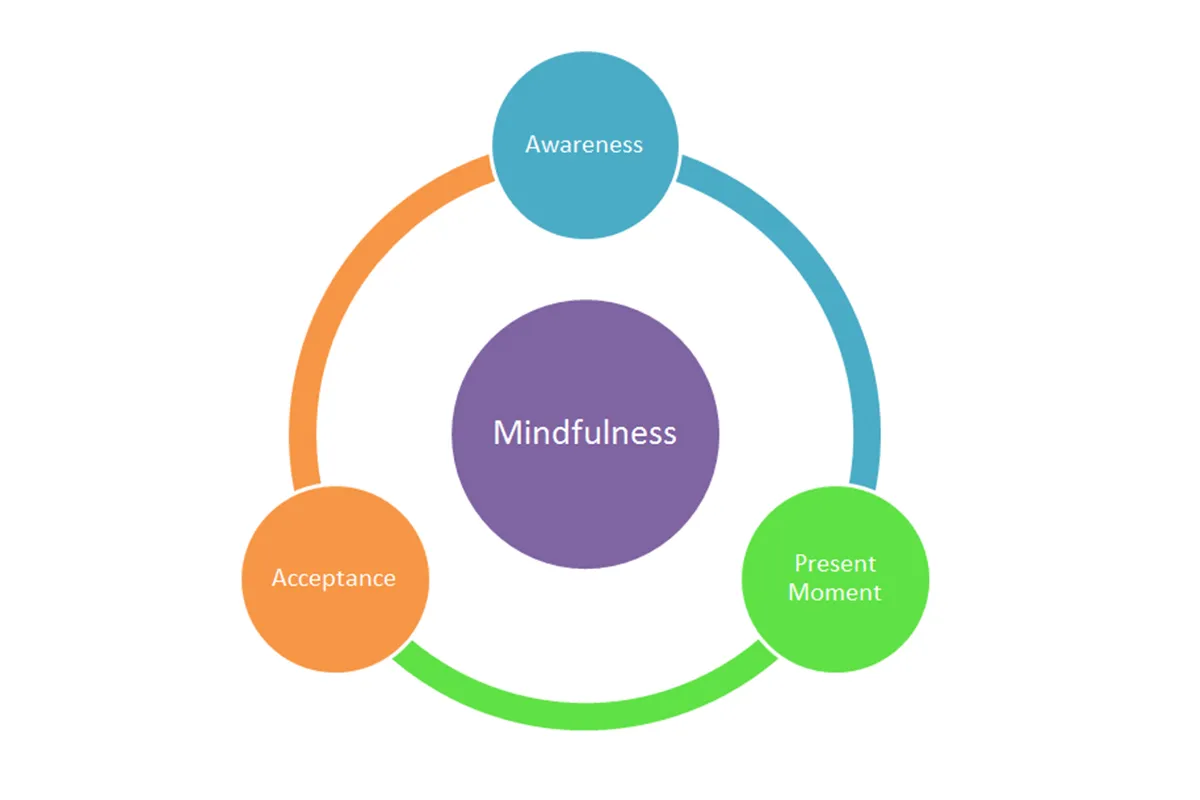The Multifaceted Value of Therapy for Weight Loss Programs
-
 Written by
Michael J. Ormsbee
Written by
Michael J. Ormsbee
- LAST UPDATED September 21, 2023
Globally, obesity has escalated to epidemic proportions, paving the way for heightened health risks and a lower quality of life for millions of individuals. Achieving and maintaining a healthy body weight, while vital, can be a daunting task that presents physical and psychological hurdles. This is where therapy for weight loss becomes indispensable. By addressing mental and emotional factors that inform eating and exercise habits, therapy for weight loss provides a route to more enduring, substantial weight loss results, making it a powerful tool in battling the obesity epidemic.
The Growing Role of Therapy for Weight Loss Management
In recent years, there has been a major shift in perspectives on obesity, from viewing it as solely a physical disease to understanding the behavioral and psychological factors that drive this complex condition. As a result, therapy is taking on an increasingly prominent role within comprehensive medical weight loss programs.
Whereas traditional weight loss plans focused almost exclusively on calorie restriction and exercise quotas, many health providers now recognize the importance of addressing the root psychological causes behind overeating and sedentary lifestyles. Providers of weight loss services are realizing that strict dieting and intense exercise routines on their own are rarely effective over the long term. Most people who lose weight by drastic calorie cutting end up regaining that weight within one to two years. This happens in part because crash diets do not resolve the underlying emotional issues, thought patterns, and ingrained behaviors that caused weight gain in the first place.
Integrating therapy for weight loss into weight management programs aims to empower people to make lasting lifestyle modifications by building motivation, self-efficacy, and skills to manage stress and obstacles that commonly trigger backsliding. Leading health organizations now identify counseling and behavioral interventions as essential components of effective medical weight loss programs. For example, the American Heart Association recommends that providers offer psychotherapy, support groups, mindfulness therapy, or other behavioral treatment options as part of comprehensive obesity management.
Likewise, the Obesity Medicine Association has outlined clinical practice guidelines that highlight the importance of addressing the behavioral, psychological, and social factors that influence eating and activity habits. Their recommendations for obesity treatment include regular sessions focused on goal setting, identifying barriers, problem-solving, and relapse prevention. Therapy for weight loss can provide this type of ongoing motivational and cognitive behavioral support as an integral part of the weight loss process.

Diverse Therapeutic Approaches Utilized in Therapy for Weight Loss
There are several therapeutic modalities that can be incorporated into weight loss programs to help participants modify the thoughts, emotions, and behaviors that contribute to obesity. Common approaches include:
Cognitive Behavioral Therapy
Cognitive-behavioral therapy (CBT) for weight loss aims to transform negative thought patterns, counterproductive attitudes, and unhealthy behaviors associated with eating and exercise. Therapy for weight loss, particularly CBT, involves identifying and challenging distorted beliefs like, “I’ve already ruined my diet today, so I might as well keep eating,” or “I’ll never be able to lose this weight.” By applying techniques such as monitoring automatic thoughts, modifying cognitive distortions, and reframing self-talk, therapy for weight loss reinforces more realistic and constructive mindsets. For instance, countering the all-or-nothing thought pattern, “I already blew my diet, so today is a total loss,” with “It’s one slip-up. I can get right back on track with my next meal.” Moreover, CBT’s role in therapy for weight loss goes beyond the mental aspect, delving into promoting new behavioral habits. It equips individuals with tools to break the cycle of emotional eating, manage portion sizes, and boost physical activity, making it a significant ally in weight management.
Dialectical Behavior Therapy
Dialectical behavior therapy (DBT) can help build critical skills for regulating emotions, tolerating discomfort, and coping with real-life challenges that commonly undermine weight loss efforts. This type of therapy was originally developed to treat borderline personality disorder but has been adapted as an intervention for binge and emotional eating. DBT utilizes mindfulness strategies to increase awareness of hunger, cravings, and emotional triggers for overeating. It also teaches distress tolerance techniques to manage urges to binge and prevent reactive eating in response to negative emotions. DBT helps counter the common tendency to use food as a coping mechanism for stress and other unpleasant feelings that arise in daily life.
Motivational Interviewing
Motivational interviewing, a pivotal part of therapy for weight loss, is a goal-oriented counseling technique intended to tap into a person’s inherent motivations for wanting to change and cultivate readiness for action. Unlike dictating resolutions, the therapist’s function in therapy for weight loss is to facilitate discussions that encourage clients to find their own reasons for desiring weight loss, as well as ascertain the personal steps they need to take towards their objectives. This therapeutic approach aids in rectifying the uncertainty that often impairs commitment to the difficult journey of losing weight and sustaining it. Within the scope of therapy for weight loss, the therapist nudges the shift from contemplation to action by eliciting change-oriented expressions from the client, bolstering self-efficacy, and addressing resistance in a non-aggressive manner.

Mindfulness-Based Approaches
Mindfulness practices can foster the self-awareness and self-regulation needed to make beneficial changes in eating behaviors. Mindfulness-based eating awareness training specifically focuses on cultivating non-judgmental awareness of physical hunger cues, food cravings, and emotional triggers for overeating. Mindful eating encourages paying close attention to the taste experience, sensations, satisfaction, and nutritional value of foods to help guide intake. Mindfulness meditation also provides cognitive and emotional self-regulation skills that translate into less stress-related and mindless eating. Regular mindfulness practice has been shown to decrease binge eating episodes and emotional eating.
Support Groups
Support groups, a significant component of therapy for weight loss, can offer a sense of community, responsibility, and a safe environment conducive to sharing the everyday battles of weight reduction and maintaining it. Groups such as Overeaters Anonymous call upon 12-step principles to aid members in recovering from persistent overeating—a crucial piece of the puzzle in therapy for weight loss. Other support groups under the umbrella of therapy for weight loss assemble peers grappling with similar hurdles due to common underlying issues like bariatric surgery, diabetes, or eating disorders such as binge eating. Navigating through challenges collectively can help alleviate feelings of loneliness and foster unity. In addition, as part of therapy for weight loss, support groups can supply the motivation necessary to persevere with weight loss initiatives, particularly when progress plateaus or obstacles arise.
Family Therapy
Addressing family and relationship dynamics through couples or family therapy is often an important piece of sustained weight loss, especially for adolescents and young adults still living at home. Family communication patterns around food and body image can contribute to disordered eating behaviors. Family therapy aims to promote a home environment that encourages healthy nutrition and activity habits. It also helps ensure family members provide positive reinforcement for lifestyle changes instead of sabotaging or enabling unhealthy behaviors. Resolution of family conflicts that add stress and undermine weight loss efforts is another goal of this therapy approach.
Benefits of Addressing Psychological Factors During Therapy for Weight Loss
Including therapy as part of comprehensive medical weight loss programs offers a number of potential benefits:
Targets Root Causes
Therapy for weight loss can delve into and address the underlying psychological issues attributed to obesity, which can encompass depression, anxiety, emotional eating, food addiction, negative body image, and low self-esteem. Instances of past trauma that lead to overeating and sedentary lifestyles may also be mitigated through trauma therapy, a sub facet of therapy for weight loss. Conditions like binge eating disorder, night eating syndrome, and other eating disorders—which often occur concurrently with obesity—can also be effectively managed through proper psychotherapy in the context of therapy for weight loss.
Builds Motivation and Self-Efficacy
One of the valuable functions of therapy for weight loss is helping participants strengthen their internal motivation for making difficult lifestyle changes. The motivational interviewing technique in particular aims to elicit change talk and build readiness. Cognitive behavioral approaches also focus on building self-efficacy and instilling the confidence needed to lose weight and keep it off despite hurdles. This enhances commitment to the demanding process of implementing exercise routines, improving nutrition, controlling portions, and enduring plateaus.

Provides Ongoing Support System
The check-ins and accountability provided by regular therapist sessions help keep people focused on their weight loss goals. Having an objective professional overseeing progress and offering feedback can stimulate the motivation needed to stick with the program when willpower lags. The therapist also functions as an unconditional support system, especially when self-judgment arises because of lapses or perceived failures. Knowing there is a forthcoming appointment to discuss setbacks in a constructive way lessens feelings of shame and hopelessness.
Teaches Helpful Strategies
Therapy equips clients with concrete cognitive and behavioral skills that enable them to implement the needed lifestyle changes. These may include stress management techniques, emotion regulation tactics, mindful eating practices, portion control tricks, assertiveness skills to navigate social pressures, exercise compliance strategies, and many other beneficial tools. Learning to apply these skills independently creates the capacity for people to manage their health behaviors long term.
Focuses on Sustainable Change
Fad crash diets and exercise boot camps often look for quick results through extreme and restrictive methods. However, such short-term approaches are rarely successful at generating lasting weight loss. Therapy aims for gradual but sustainable changes in mindset and habits. The skills clients develop allow them to adhere to healthy lifestyles indefinitely versus simply attaining a number on the scale. This facilitates lifelong weight management rather than short-term weight loss followed by weight regain.
What to Expect in Therapy for Weight Loss
The therapy process focuses both on achieving stepwise goals during active weight loss phases as well as equipping clients with tools for long-term maintenance. Areas of focus may include:
Assessing Current Eating Patterns and Beliefs
The therapist will conduct a detailed functional analysis of current eating habits, identifying high-risk problem foods and situations that trigger overeating. They will help uncover cognitive patterns and explore the client’s mindset regarding weight, body image, and expectations for the weight loss process. This enables the creation of an individually tailored treatment plan.
Monitoring Thoughts, Emotions and Behaviors
A key element of therapy for weight loss involves consistent tracking of thoughts surrounding food, exercise, and body image as well as emotional states and behavioral choices. This awareness reveals influential patterns and dysfunctional thinking in real-time. Clients may utilize food logs, thought journals, mood rating scales, and other tools to enable this monitoring.
Setting Achievable Goals
Collaboratively defining reasonable short-term and long-term weight loss milestones provides tangible targets to work towards. Goals are specific, measurable, and scheduled within realistic time frames. Gradual progress landmarks generate ongoing positive reinforcement and a sense of mastery.

Identifying Sources of Support and Sabotage
In therapy for weight loss, the therapist will assist the client in assessing the impact of their social circle—including family, friends, and coworkers—on their weight gain or loss journey. Together, they can devise strategies to bolster productive support and navigate relationships that may consciously or unconsciously disrupt efforts geared toward weight loss. Such social context-based cognitive strategizing is an important part of comprehensive therapy for weight loss.
Building Physical Activity Into Daily Routine
Creating consistent exercise habits is essential for achieving and sustaining weight loss. The therapist can aid in designing home exercise programs, planning rewarding physical activities, overcoming exercise avoidance, and troubleshooting barriers like lack of time. They help clients view physical activity as an indispensable, enjoyable part of life rather than a chore.
Practicing Mindful Eating
Developing mindful eating skills is important for controlling food portions and reducing stress-related eating. The therapist provides training in mindfulness practices designed to increase awareness and self-regulation around food. Clients learn to slow down and pay attention during meals, notice hunger and satiety signals, and manage cravings.
Modifying Negative Thought Patterns
As part of therapy for weight loss, cognitive-behavioral therapy techniques aid in breaking the cycle of routine negative self-talk and distorted cognitions like “I’ll never be skinny,” which can weaken motivation and evoke emotional eating as a form of self-sabotage. In therapy for weight loss, clients are guided to reorient these thoughts in a more adaptive, constructive fashion, enabling a healthier mental approach to weight management.
Managing Setbacks
The therapist normalizes occasional lapses as part of the process and helps clients reframe them as learning opportunities. Together they develop strategies to stop minor slips from spiraling into full relapses. The therapist provides nonjudgmental support in re-committing to program goals and making self-care a priority after stumbles.
Efficacy of Therapy for Weight Loss
A growing body of research provides support for incorporating psychotherapy approaches into both medical and commercial weight loss programs.
Cognitive behavioral therapy (CBT) in particular has the strongest evidence base showing its efficacy and durability for weight loss. Multiple meta-analyses and systematic reviews of dozens of high-quality studies have demonstrated that CBT results in significantly greater weight reduction compared to control interventions or standard behavioral counseling. People who participate in cognitive behavioral weight loss programs are also more likely to maintain lost weight long-term than those who complete diet and exercise plans alone.
For example, one extensive meta-analysis published in the journal Obesity Review evaluated data from 29 randomized controlled trials comparing weight loss programs with and without a CBT component. The addition of CBT to standard care resulted in nearly 2.5 kg (around 5.5 lbs) greater weight reduction on average, indicating its incremental efficacy. The effects of CBT on weight loss were sustained over follow-up periods ranging from 1-5 years.
Similarly, a systematic review in the International Journal of Obesity examined 19 studies investigating long-term weight loss maintenance following various behavioral interventions. The results showed an association between greater duration of CBT and increased weight loss maintenance for up to 10 years after completing an initial structured weight loss program. This suggests CBT confers skills that support keeping weight off successfully over time.
Research also demonstrates that addressing emotional and uncontrolled eating through the use of dialectical behavior therapy (DBT) skills training can improve weight loss outcomes. Several studies have found that 6 months of weekly group DBT specifically adapted for binge eating problems resulted in significant decreases in binge episodes, emotional eating, food cravings, and body mass index.
Motivational interviewing has also proven successful at enhancing readiness to change nutrition and activity habits. In multiple studies of overweight and obese adults, those assigned to a few sessions of motivational interviewing in addition to standard diet counseling lost more weight over both short-term and long-term follow-ups compared to diet counseling alone. This speaks to the value of motivational techniques for boosting commitment to the challenging weight loss process.

While more research is still needed, initial findings suggest that mindfulness training and mindful eating interventions also offer promise for addressing problematic eating behaviors. Results from pilot studies indicate participating in mindfulness programs can increase control of binge eating urges and emotional eating, reduce body weight, and decrease episodes of overeating.
Overall, a consensus of well-designed studies indicates therapeutic approaches have significant potential to magnify and prolong weight loss when included as part of structured programs. Success is of course highly dependent on an individual’s level of motivation, readiness to make difficult lifestyle changes, and consistent engagement with implementing what they learn in therapy. However ideal outcomes are seen when therapy for weight loss and skills training is combined with nutrition, physical activity, and medical components in a comprehensive multi-disciplinary program.
Addressing the Challenges: Access and Adherence to Therapy for Weight Loss
While therapeutic interventions optimally play a central role in medical weight management, there remain significant barriers to their usage and long-term adherence.
Access and Cost
The out-of-pocket expenses associated with therapy for weight loss and behavioral health services can create challenges for many individuals seeking support to attain their weight loss objectives. Even though studies have affirmed its efficacy, many insurance providers still do not extend coverage for cognitive behavioral therapy or other psychological interventions for obesity as they do for treating conditions such as depression or anxiety. Even in instances where partial coverage is offered, therapy for weight loss often necessitates frequent visits, and the associated copays can become prohibitively expensive for lower-income individuals. The requirement to cover high treatment costs for extended periods can negatively affect patient retention and completion rates in therapy for weight loss.
Availability and Convenience
Specialized therapists who apply evidence-based techniques for weight management are not widely available in all communities. People in rural areas or certain geographic regions may lack access to qualified professionals with expertise in this domain. In addition, the time commitment required for frequent in-person therapy sessions imposes logistical challenges for those with packed schedules or family obligations. Transportation barriers and having to take time off from work for appointments also commonly limit participation and adherence.

Treatment Motivation and Readiness
Successful therapy for weight loss typically necessitates intensive changes in daily habits and cognitive patterns, requiring high degrees of intrinsic motivation and readiness for lifestyle modifications. However, individuals combating obesity often find themselves disheartened due to unsuccessful prior attempts at shedding weight. Beginning therapy for weight loss with low self-efficacy and a lack of faith in one’s ability to accomplish changes presents a challenging start. Persisting ambivalence and weak commitment to making steady efforts serve as barriers to progress in therapy for weight loss and hinder long-term results.
Weight Bias and Stigma
Social prejudice, negative stereotyping, and weight shaming remain pervasive. The stigma surrounding obesity can make people feel embarrassed and reluctant to seek in-person psychological treatment for weight management. Perceived judgment or lack of compassion from providers, if they do not progress as expected, may cause clients to disengage prematurely from therapy.
These factors combine to reduce initiation of and adherence to therapeutic weight loss interventions, limiting their impact. Ongoing efforts are needed to improve the accessibility, affordability, convenience, and acceptability of these services for the individuals who stand to benefit from them.
Future Perspectives on the Evolution of Therapy for Weight Loss
In light of the proven value of incorporating psychological components into multidisciplinary weight loss care, improving the reach and efficacy of therapy for weight loss remains a priority. Some directions for continued evolution include:
Expanded Insurance Coverage
Advocacy is needed to increase recognition by health insurers that obesity is a complex chronic disease requiring multifaceted treatment including psychological services. Standardizing insurance coverage and reimbursement for cognitive behavioral therapy, motivational interviewing, and other therapy modalities as part of comprehensive medical weight loss programs will ensure access.
Optimizing Digital Delivery
Virtual options could make therapy more convenient and reachable. Tele-mental health platforms enable providing services remotely via videoconferencing. Digital tools such as smartphone apps, text messaging support, and social media groups also have untapped potential for delivering therapy components. Hybrid models blending digital solutions and in-person treatment may yield optimal results.
Focus on Diverse Populations
Research into tailored applications of therapy for weight loss for populations with distinct needs such as post-bariatric surgery patients, people with eating disorders, individuals with weight-related co-morbidities, adolescents, and diverse ethnic groups can enhance outcomes. Therapy should be aligned with each subgroup’s unique circumstances.

Stepped Care Approaches
Treatment intensity can be matched to symptom severity for cost-effectiveness through stepped care frameworks. For example, those with binge eating disorder may be referred for higher intensity DBT, while mild to moderate emotional eaters start with brief motivational interviewing and progress if needed.
Preventive Interventions
For at-risk individuals not yet considered obese, shorter-term therapeutic guidance focused on making dietary and activity modifications could prevent escalation to necessitating intensive weight loss treatment. Early intervention models applying therapeutic techniques are being explored for prevention.
Inclusion in Lifestyle Medicine
Brief therapy focused on underlying drivers of unhealthy behavior should be standard in primary care lifestyle counseling for mildly overweight patients. This could reduce progression to complex obesity in need of specialty multidisciplinary services.
Expanded training
Increased instruction in proven psychotherapy and counseling techniques at undergraduate and graduate levels can build a workforce adept at delivering therapy for weight loss. Weight management-specific interventions should be part of the curriculum for medical schools, nutrition and dietetics programs, psychology doctoral programs, and other relevant fields.
Conclusions
In summary, a modern medical approach to obesity treatment requires going beyond traditional lifestyle modification to address the psychological, emotional, and social factors that influence eating and activity behaviors. Research indicates cognitive behavioral interventions, motivational enhancement techniques, dialectical behavior skills training, and other therapies can provide this vital dimension.

FAQs about Therapy for Weight Loss
What therapy is best for weight loss?
Choosing the appropriate therapy for weight loss can depend on the individual's personal needs and circumstances. However, Cognitive Behavioral Therapy (CBT) is often seen as highly effective. CBT aims to change behavior by identifying and altering negative thought patterns that can influence our actions. For individuals dealing with weight issues, these tools can help manage emotional eating, self-sabotage, and low self-esteem. However, it's always recommended to consult with a healthcare professional to identify the most suitable approach.
What is psychotherapy for weight loss?
Psychotherapy for weight loss involves using psychological methods to help promote healthier eating habits and develop positive relationships with food and body image. It can address underlying psychological issues contributing to weight gain, such as binge eating, emotional eating, food addiction, and body dysmorphia. It can also help manage co-existing mental health issues like depression, anxiety, and low self-esteem that may be contributing to unhealthy eating habits.
What is the most effective treatment for obesity?
There's no one-size-fits-all treatment for obesity. A blend of a balanced diet, regular physical activity, behavior change, and in some cases medication or surgery is considered effective. Therapy can play a critical role in supporting these lifestyle changes and helping individuals develop healthy habits and mindsets that can contribute significantly to successful long-term weight management.
What is the only FDA-approved weight loss pill?
As of now, there are several FDA-approved prescription weight loss drugs including Orlistat (Xenical), Lorcaserin (Belviq), Phentermine-Topiramate (Qsymia), Naltrexone-Bupropion (Contrave), and Liraglutide (Saxenda). These medications work in different ways and are prescribed based on individual health profiles. Always consult a healthcare professional before starting any medication, including weight loss pills.






